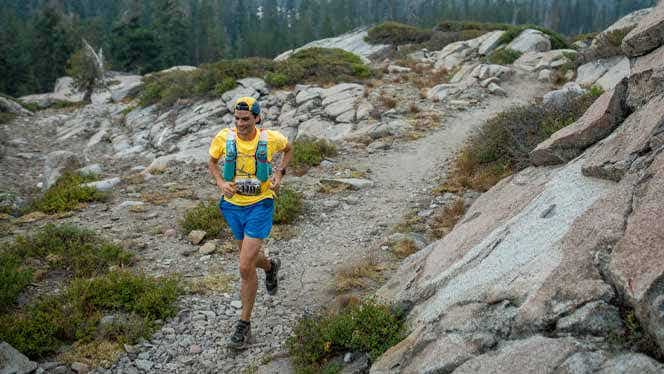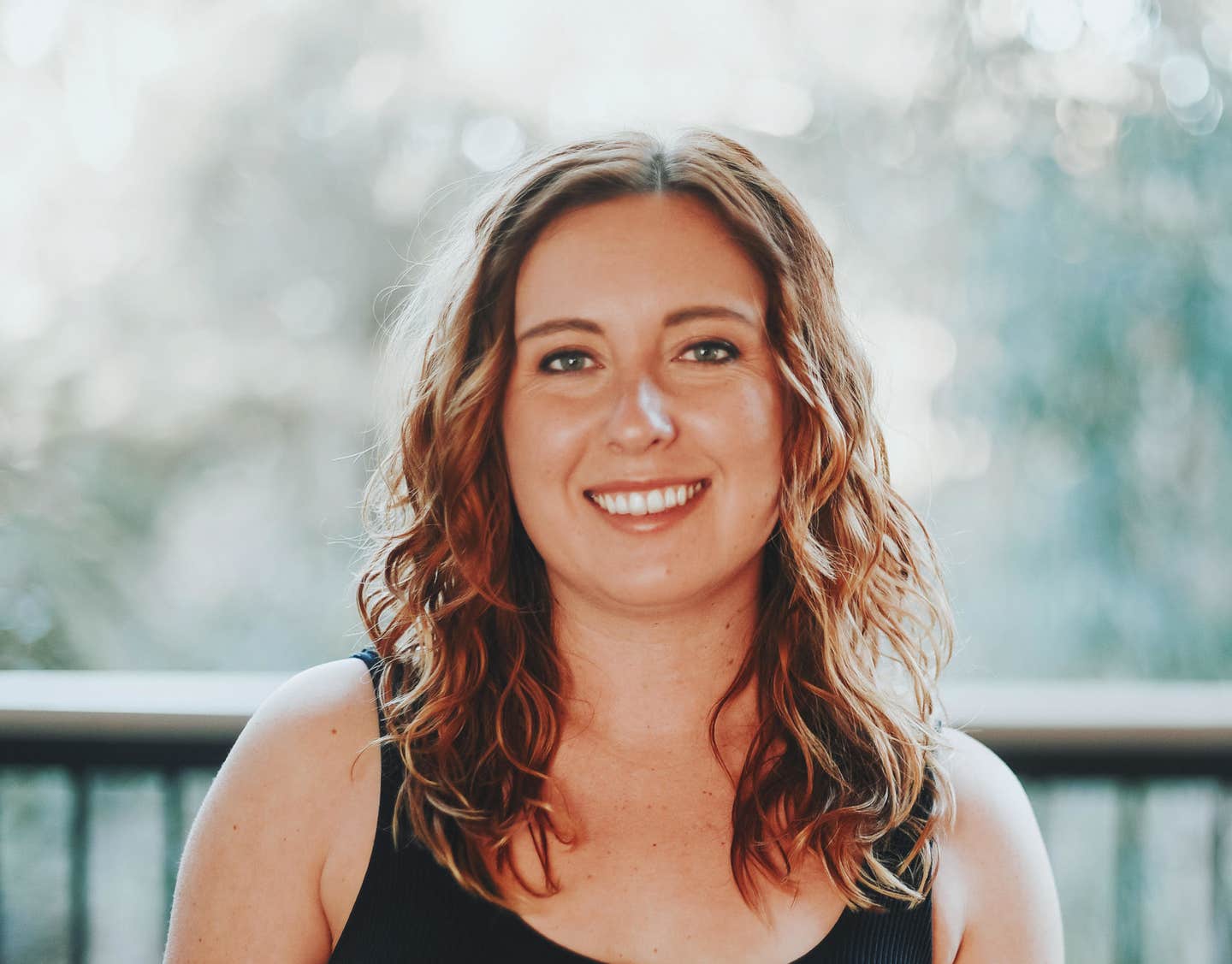
Ultramarathon Champion Austin Meyer on Life as a Vegan Endurance Athlete
In the spring of 2023, Austin Meyer won his first ultramarathon—a grueling 100-kilometer trail race through the majestic landscape of Zion National Park. The path to his incredible achievement was paved by years of dedicated training, an unwavering positive attitude, and lots of plant-based meals. Meyer was first introduced to veganism in 2018 and has since seized the opportunity to promote a plant-based lifestyle not only through his athletic pursuits but also as a professional documentarian and journalist. FOK spoke with Meyer about how he found ultramarathon running after the end of another athletic dream, why veganism is more of a lifestyle than a diet, and how he hopes to inspire other athletes by fueling his wins with plant power.
What inspired you to start running in ultramarathons?
Austin Meyer: From 2010 to 2014 I played for the Stanford University soccer team. My vision was always to be a professional soccer player. At the end of my college soccer career, I hoped to hear my name called in the [Major League Soccer] draft. I had been going on trial with some teams, but unfortunately it didn’t pan out. So at that point, I decided to stay in school and pursue a graduate degree in journalism instead of playing second division professional. But what it meant was that I had to find a new athletic identity. I really was distraught when my soccer career was over, I was searching for that void to be filled. And in that time of searching, I ended up stumbling upon a book called Born to Run. It talks about how humans are distinct in our physiology to be able to cover super long distances on foot, and it talked a lot about ultra trail running. It sounded so wild, but also really captivated my imagination and made me think, “I wonder if I could do that.” And so having never run a race of any distance in my life, I decided to sign up for a 50-mile trail race.
You didn’t want to ease into it?
AM: In soccer I might be running eight miles in a game. So there was something about doing a 50-mile race where I was like, “I truly don't know if I can do this.” And that really excited me. Whereas I was pretty confident I could do a marathon, the 50-mile race was this big unknown. And so the experience of training for that race and then running that first race in 2016 was kind of the kickstart of this new obsession with ultramarathons.
You’ve since run 12 ultramarathons, winning the Zion 100K Trail Race earlier this year. What’s your training process like?
AM: I train six days a week, and then the seventh day I use as a rest and recovery day. In those six days of training, I’m getting in the range of 65 to 75 miles per week. Two of those days I’ll have more concentrated speed work where I'm really focused on building my running efficiency and speed. And then the other four of those days are more focused on just enjoying the trails and going at a conversational pace. Most of that training happens in the woods, in the forests here in the East Bay [of San Francisco].
What is it like to be running alone on these extra-long races?
AM: One of the reasons I’m drawn to this sport so much is the mental challenge of being in complete solitude throughout training for over 10 hours a week. And then on race day, I almost go into a meditative trance as I run. I’m not listening to music; it's just me and my thoughts and the pitter-patter of my feet. And my mind scans between a few different variables, like, “How’s my pace? Am I eating enough? Am I drinking enough?” And then just trying to stay as present and in the moment as possible. Zion was the first ultra marathon that I ever won, and it’s also the first ultra marathon that I’ve really been in the lead at all. So having that experience of being chased by a field of over 200 people was really unique. I remember trying to forget the fact that I was in the lead and just be present with the current mile I was on. I was trying to chase the ghost of my own potential rather than worry about people behind me who might catch up.
How did you feel crossing the finish line in Zion?
AM: For the past three ultra marathons I’ve done at the 100K distance, within 10 minutes of finishing I was in the medical tent needing attention. The previous one before this, I was in a wheelchair just minutes after. But for one reason or another, when I finished the race in Zion I was able to celebrate with my girlfriend and didn’t need to go to a medical tent. I got to cheer on the people who were finishing behind me who had been in this awesome race with me all day. It was a moment where I got to really reflect on these seven years post-soccer. I felt a lot of gratitude for the fact that even though one sport I loved was suddenly gone, I found something else to take its place.
Tell us about your journey with veganism.
AM: I went vegan in 2018. That year I got a grant from National Geographic to make a documentary film in Zambia. I arrived in Lusaka, Zambia, and had a few weeks of logistics before I could really start the project I was working on. So I had all this space in this new location separated from the identity that I had constructed for myself at home. In that space of solitude and reflection, and being a little uncomfortable with the new surroundings, there was something about my mindset that just started to open in a new way. At that time, I was listening to a podcast called The Rich Roll Podcast, which is hosted by a vegan endurance athlete. I’d been in the endurance arena for a couple years at that point, and was always thinking about how to optimize my performance. Rich Roll often has guests who come on and talk about veganism, and in the past I had always been like, “Ah, no, I’m going to skip over this; it’s not for me.” But in that space of having my mind opened by this new context of where I was living, suddenly I was open to listening to the messages and really taking them to heart. I just started binge listening. And within a day or two, I was convinced that going vegan would be in alignment with the values I hold most dear.
What are the values that you feel veganism aligns with?
AM: So the first one is the value of compassion and care. I was shocked and horrified when I heard about just how poorly animals are treated in the industrial farming system. It was so clear to me how my dollars and my decisions were leading directly to the suffering of an individual, and I couldn’t come up with any sort of justification to continue doing that. Another core value is vitality, which I view as cultivating the life force energy that enables me to go on adventures—not just right now but also as I get older, so I can do the things I love for as long as possible. I started to listen to the evidence-based health benefits for performance and longevity. And then lastly, I’m an environmentalist. One of the things that I love so much about veganism is that it makes me feel very empowered in the face of such insurmountable challenges. It feels amazing to be able to act in alignment with my values every single day, multiple times a day, by choosing what I eat.
Did you notice any changes in terms of athletic performance after going vegan?
AM: The immediate shift I felt was more of a mental transformation—how good I felt to be living in alignment with my values. And then since going vegan and continuing to get more educated about how to optimize a whole-food, plant-based diet, I’ve absolutely seen how that has propelled my performance as an ultra athlete. I feel like eating WFPB has really helped me stay injury free so that I could make such immense strides since I started this sport. It’s amazing for me to say right now, almost a decade out of being a Stanford soccer player, that I’m fitter than I was back then.
What do you hope your achievements show to others about being a vegan athlete?
AM: I’m representing a counter narrative to what so many people view defines the vegan diet, which is this idea that it isn’t masculine or that you can’t be a great athlete. So if I can win a race or have amazingly consistent training and be someone who's positive about it, maybe even just one person will think differently about how they eat and how that could impact their performance. It’s very rewarding for me to look at it in those terms.
How does your passion for storytelling intertwine with your vegan values?
AM: My personal sensibilities as a documentarian lean more towards the inspirational and the positive. I love telling stories about the animals at sanctuaries—their backstories and what their lives are like now. I'm also really interested in finding stories that get people to see animals as someone rather than something. Oftentimes what that looks like is finding stories that highlight the interconnectedness between humans and animals and that tender, innate connection that we have. Most recently, I was in Rwanda for three weeks filming a documentary about wildlife veterinarians that look after an endangered mountain gorilla population in Volcanoes National Park.
What advice would you give to someone who is curious about going vegan but isn’t sure where to start?
AM: My first piece of advice is to think about your personal values and then look for resources that speak to how veganism interacts with them. I guarantee pretty much whatever value or issue you hold dear, veganism interacts with it. Starting there means you’re grounded in a “why” that will help you navigate the challenges along the way. And if you come up against friction from family members or a partner, I would say to lead by example. My hope is that as an athlete I can continue to run with joy and a positive spirit and continue to progress for many years, and that success will do the loudest talking about the merits of a vegan diet. Just do your best to be a lighthouse of inspiration that guides people toward making positive choices for themselves.

About the Author

About the Author
Megan Edwards
Join our mailing list
Get free recipes and the latest info on living a happy, healthy plant-based lifestyle.
By providing your email address, you consent to receive newsletter emails from Forks Over Knives. We value your privacy and will keep your email address safe. You may unsubscribe from our emails at any time.